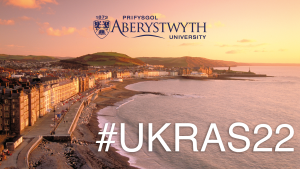UKRAS22: Speakers
Keynote Speakers
Dr Matthew Nancekievill
CEO, Ice Nine Robotic Solutions

Matthew is CEO and co-founder of Ice Nine Ltd, a company that offers innovative mobile robotic solutions to characterise and inspect hazardous environments. Having studied Mechatronic Engineering at The University of Manchester, he completed his PhD in mobile robotic platforms and radiation tolerance of electronic components. This has led him to design robust robotic platforms and deploy submersible and ground based systems in radioactive nuclear environments both internationally and nationally across multiple PDRA positions.
Matthew became frustrated with innovative work completed during research grants, not becoming “business-as-usual” on nuclear sites, instead gathering dust on a shelf at the end of a grant. He therefore founded Ice Nine Ltd, with the aim to commercialise systems, offering real value to the end-users of the system and has taken part in schemes such as ICURe NxNW and the RAEng enterprise fellowship.
Professor Andrew Star
Professor of Maintenance Systems, Cranfield University

Title: Railway robots for infrastructure inspection
Andrew is Head of the Centre for Life-cycle Engineering and Management (CLEM) at Cranfield University, a world-leading centre of excellence in maintenance and asset management for high value systems. CLEM works in partnership with industry in research and education. Professor Starr read Mechanical Engineering at the University of Leeds, while sponsored by British Aerospace (Civil Aircraft), for which he was awarded first prize in the final year of his apprenticeship. He studied for his doctoral thesis in condition based maintenance for robotic production plant at the University of Manchester, sponsored by Ford and Wolfson Maintenance. He has held academic posts at the University of Huddersfield, the University of Manchester, and the University of Hertfordshire. His research work has been funded by EPSRC, the EU, and a wide range of industrial partners. He is a Chartered Engineer, a Fellow of the Royal Aeronautical Society, a Fellow of the Institution of Mechanical Engineers, a member of the British Institute of Non-Destructive Testing, a member of the Institute of Asset Management, and a member of the Permanent Way Institute. He has published over 200 technical papers from a wide range of collaborative projects.
Dr Virginia Ruiz Garate
Associate Professor in Assistive Robotics, University of the West of England

Virginia Ruiz Garate is an Associate Professor in Assistive Robotics at the University of the West of England (UWE), Bristol, where she develops her research within the Bristol Robotics Laboratory (BRL). Within UWE she is also the Co-leader of the Robotics Engineering And Computing for Healthcare (REACH) research group. Previously, she worked as a PostDoc at the Human-Robot Interfaces and Physical Interaction (HRII) laboratory of the Istituto Italiano di Tecnologia (IIT), where she researched under the EU projects SOMA and SOPHIA regarding new grasping stiffness controls for robotic hands and multi-robot tele-impedance control frameworks. She obtained her PhD in 2016 from the Universite Catholique de Louvain (UCL) in Belgium, being her thesis devoted to bio-inspired control of lower limb exoskeletons within the framework of the EU project CYBERLEGs.
Virginia has been serving as a reviewer for several international journals and conferences such as RA-L, ICRA, IROS, ICORR, BioRob, CASE, TII, TNSRE, T-RO, Frontiers in Neurorobotics, Frontiers in Computational Neuroscience, and Science Reports (Nature). She has co-organized the 2022 workshop on “Past and Future of Assistive Technologies”, ICRA2021/RSS 2019 workshop on “Emerging Paradigms for Robotic Manipulation: from the Lab to the Productive World” (from which a RAM SI developed); and the workshop “Human factors in the design and control of robots: what are we missing?” in the 2020 I-RIM 3D conference. Her current research interests include assistive robotics, grasping and manipulation, bio-inspired control, and human-robot collaboration.

